Search
for
Sort by
Research
570-600 / 1000+ resultsresearch Update on the Treatment of Trichotillomania
Trichotillomania (TTM) is an obsessive-compulsive disorder characterized by recurrent hair pulling, leading to hair loss or alopecia. Treating TTM is challenging and involves a combination of pharmacological and non-pharmacological methods. Cognitive-behavioral therapy is effective but not suitable for all patients. Alternative support tools like electronic devices, internet therapies, and microneedling are suggested. N-acetylcysteine and memantine are recommended as first-line treatments due to their safety and efficacy, with minimal adverse effects. Other drugs such as fluoxetine, clomipramine, olanzapine, and naltrexone show limited and variable efficacy. This review discusses current treatment options for managing TTM.
research Low-Dose Oral Minoxidil in Frontal Fibrosing Alopecia: Series of 122 Patients
The study analyzed the effectiveness of low-dose oral minoxidil in treating frontal fibrosing alopecia (FFA) in a case series of 122 patients across centers in Brazil and Spain. Results showed that 45.1% of patients experienced improvement in the density of the frontotemporal hairline, with 34.4% showing mild, 9.0% moderate, and 1.6% excellent improvement. Additionally, 57.4% saw improved hair density in the interparietal area, 25.4% experienced eyebrow growth, and 3.3% had eyelash growth. Adverse effects were reported in 33.6% of patients, with hypertrichosis being the most common at 23.8%. The study suggests oral minoxidil as a complementary therapy for FFA, enhancing hair and eyebrow growth and frontotemporal hairline density.
research Tolerance And Safety Profile Of Sublingual Minoxidil In The Treatment Of Androgenic Alopecia
Sublingual minoxidil is safe and well-tolerated for hair loss treatment.
research Impact of Finasteride and Dutasteride on Beard Thickness in Men with Androgenetic Alopecia: A 453-Patient Retrospective Trial
Finasteride and dutasteride can increase beard thickness in men.
research Update on Trichodynia, a Challenge for Dermatologists
Trichodynia is a painful scalp condition linked to hair loss and mental health issues, with limited treatment options.
research Tolerance and Safety Profile of Sublingual Minoxidil in the Treatment of Androgenic Alopecia
Sublingual minoxidil is a safe and effective treatment for hair loss, especially in women.
research Impact of Finasteride and Dutasteride in Beard Thickness in Men with Androgenetic Alopecia: A 453-Patient Retrospective Trial
Finasteride and dutasteride do not significantly change beard thickness in men.

research Update on the Treatment of Trichotillomania
Effective treatments for trichotillomania include cognitive-behavioral therapy, certain medications, and alternative support tools.
research Ötzi, The Iceman: Lyme Disease, Androgenetic Alopecia, And Dark Skin

research Recommendations on the Clinical Management of Androgenetic Alopecia: A Consensus Document from the Spanish Group of Trichology of the Spanish Academy of Dermatology and Venereology
Dermatologists recommend oral dutasteride for male hair loss, low-dose oral minoxidil for female hair loss, and a multidisciplinary approach for young patients, with caution during pregnancy.

research Clinical And Sociodemographic Features Of Alopecia Areata In Five Colombian Cities: An Analysis Of The Renaac Registry
Most alopecia areata patients in the study were women, aged 15-49, with patchy hair loss and often had other health conditions.

research Recommendations on the Clinical Management of Androgenetic Alopecia: A Consensus Document from the Spanish Trichology Group of the Spanish Academy of Dermatology and Venereology
Experts agree on guidelines to treat common hair loss effectively.
research Keys to the Diagnosis of Hair Shaft Disorders: Part II
Hair shaft disorders, often due to genetics or environment, lack specific treatments but can be managed with gentle hair care and may improve with age or topical treatments.

research Alopecia and the Microbiome: A Future Therapeutic Target?
The microbiome may be linked to hair loss and could be a target for new treatments.
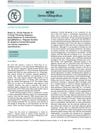
research Reply to 'Facial Papules in Frontal Fibrosing Alopecia: Good Response to Isotretinoin'
Isotretinoin at low doses effectively treats facial papules in frontal fibrosing alopecia.

research Frontal Fibrosing Alopecia and Discoid Lupus Erythematosus: More Than a Coincidence
The conclusion is that having both Frontal Fibrosing Alopecia and Discoid Lupus Erythematosus may suggest a shared immune response in certain people, and a mix of antimalarial drugs and 5-alfa-reductase inhibitors is recommended for treatment.

research Validation of a Cross-Cultural Adaptation of the Hair Specific Skindex-29 Scale to Spanish
The Spanish version of the Hair Specific Skindex-29 is a reliable tool for measuring quality of life in Spanish-speaking women with hair loss.
research The Good and Bad News About New Drugs for Treating Alopecia Areata
JAK inhibitors show promise for treating Alopecia Areata, while statins are not recommended.
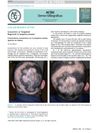
research Concentric or Targetoid Regrowth in Alopecia Areata
The document concludes that a unique target-like hair regrowth pattern in alopecia areata may be more common than thought and should be properly identified.
research Alopecic Plaques in a Cook
Stopping the use of a tight headband and using specific treatments led to partial hair regrowth.

research Hair Transplantation for Frontal Fibrosing Alopecia: Part of the Solution?
Hair transplantation for Frontal Fibrosing Alopecia may work if the disease is inactive for 2 years and with ongoing treatment to maintain results.

research Skin Manifestations of Chronic Kidney Disease
People with advanced chronic kidney disease often have skin problems, which can be treated with various medications and procedures to improve their quality of life.

research Generalized Hypertrichosis Due to Topical Minoxidil
A woman experienced excessive hair growth after using a hair loss treatment with minoxidil.
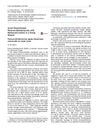
research Acute Disseminated Paracoccidioidomycosis with Molluscoid Lesions in a Young Woman
A young woman with a rare fungal infection showed significant improvement after treatment with antifungal medication.
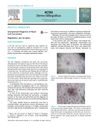
research Unexpected Diagnosis of Basal Cell Carcinoma
A young man was unexpectedly diagnosed with basal cell carcinoma after a scalp examination and confocal microscopy.
research Lesions in the Axilla After Hair Removal Using Intense Pulsed Light
Hair removal with intense pulsed light can cause rare skin lesions that are hard to fully treat.

research Usefulness of Cochrane Skin Group Reviews for Clinical Practice
Most Cochrane Skin Group reviews are helpful for improving dermatology practices, but some lack enough evidence for clinical recommendations.

research Dermatopathology Update: 2013 Advancements in Diagnosis and Treatment of Skin Diseases
The document concludes that there have been significant improvements in diagnosing and treating skin diseases, including melanoma, with new techniques and therapies.
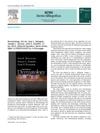
research Book Review
The reviewer recommends "Dermatology" as an essential, well-illustrated, and up-to-date resource for anyone studying or practicing in the field.